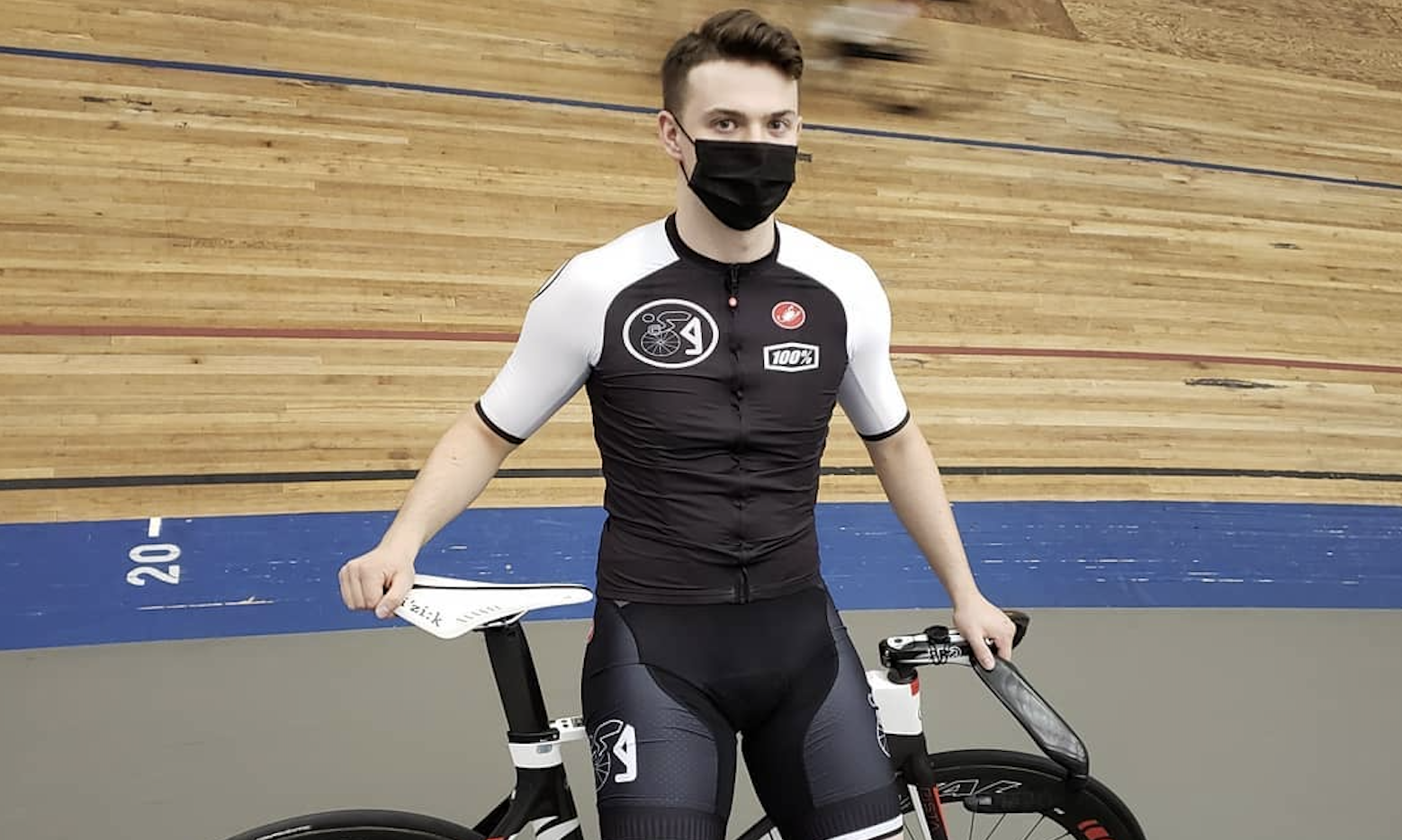Sports Science: Cycling & Sickness
Fall brings the return of Friday Night Racing, but also the dreaded cold and flu season. Nothing bothers the motivated track cyclist more than an unexpected illness. Training is derailed, race entries are cancelled, and fitness can be lost. In this post let’s have a look at sickness and cycling.
This blog, although evidence-based, is general in nature and does not replace the advice of a physician
While it can appear that lots of things are out there to get you, we’ll limit this blog to the common cold and flu.
First off, why do we get sick more often in the fall?
I am far from being an infectious disease specialist, but my take on the literature is that cold dry air reduces the capability of the cell lining within your nose to fight back viruses and bacteria [1]. Also, during colder months, we tend to stay indoors more frequently, we’re in closer quarters, and fewer windows are open to circulate the air.
What can we do to prevent getting sick?
No need to overcomplicate it, simple things work. Doing them regularly will give you the best odds of staying healthy.
- Wash your hands often
- Limit contact with sick individuals if possible
- Stay up to date with your immunizations
- Balance stress with rest & recovery (see next point)
- Sleep an appropriate amount
- Eat a balanced diet
Does exercise make you sick?
Being inactive is unhealthy and can lead to increased sickness. The biggest protective effect comes from consistent moderate exercise. On the other end of the spectrum prolonged strenuous exercise can make you more susceptible to illness [2].
If you’re reading this blog you’re probably racing and training hard. This is completely normal and actually necessary for improvements. So how can you limit being sick?
Your body has finite resources to handle stress. Stress can be a virus, school, work, parenting, training, finances, etc. Being consistently at maximal capacity in several aspects of life will eventually lower your body’s resilience you will get sick.
As training is needed to maintain and develop fitness, gradually and consistently, increase your training so that your body can adapt to a new “normal”. That way a workout that was a big stress on your body two seasons ago is now just an average training day. Balance hard training with rest.
Can I take _________ supplement/extract/vitamin?
Save your money for new track wheels, most supplements do not work. My one exception to this would be zinc lozenges taken early on when you have a sore throat [3]. To directly quote the paper, “doses of about 80 mg/day may be a useful treatment for the common cold, started within 24 hours, for a time period of less than two weeks”. Vitamin C may perhaps decrease the severity of a cold but not its occurrence [4][5].
Ultimately I’d invest in prevention.
And the million-dollar question: can I exercise when sick?
Some people go by the neck check, although this might be somewhat arbitrary [6]. This means that if symptoms are above your neck (runny nose, sore throat) light to moderate exercise is okay. The way I see it is, you’re better off taking two to three proper days off and kicking that illness right away the first time than having it linger on forever.
Lastly, if you’ve been out for a prolonged period, resist the urge to jump right back into your previous schedule but rather ease back into it. Remember there’s always going to be another race.
In closing, everyone reading this blog will likely experience some sort of cold or flu this fall. Pick up that book you’ve been meaning to read, wax your drive train, or go for a relaxing walk. Next thing you know you’ll be back on the boards.

Normand Richard
MSc, CSEP-CEP, ACSM-CET.
Richard Physiological Services
Physiologist & Occupational Fitness Consultant
PhD Candidate at Simon Fraser University
Normand has been involved in physiology for more than 10 years. He has research, clinical, occupational, and performance experience, and a professional consulting firm (richardphysiology.com). Outside of work he enjoys track racing for its community, simplicity, and challenge.
References
1. Huang D, Taha MS, Nocera AL, Workman AD, Amiji MM, Bleier BS. Cold exposure impairs extracellular vesicle swarm–mediated nasal antiviral immunity. Journal of Allergy and Clinical Immunology. 2023 Feb;151(2):509-525.e8.
2. Nieman DC, Wentz LM. The compelling link between physical activity and the body’s defence system. Journal of Sport and Health Science. 2019 May;8(3):201–17.
3. Hemilä H, Chalker E. The effectiveness of high dose zinc acetate lozenges on various common cold symptoms: a meta-analysis. BMC Fam Pract. 2015 Dec;16(1):24.
4. Hemilä H, Chalker E. Vitamin C reduces the severity of common colds: a meta-analysis. BMC Public Health. 2023 Dec 11;23(1):2468.
5. Hemilä H, Chalker E. Vitamin C for preventing and treating the common cold. Cochrane Acute Respiratory Infections Group, editor. Cochrane Database of Systematic Reviews [Internet]. 2013 Jan 31 [cited 2024 Oct 23];2013(5). Available from: http://doi.wiley.com/10.1002/14651858.CD000980.pub4
6. Schwellnus M, Adami PE, Bougault V, Budgett R, Clemm HH, Derman W, et al. International Olympic Committee (IOC) consensus statement on acute respiratory illness in athletes part 1: acute respiratory infections. Br J Sports Med. 2022 Oct;56(19):1066–88.










